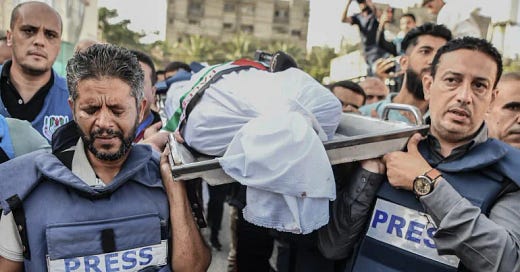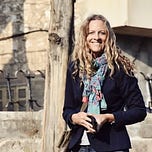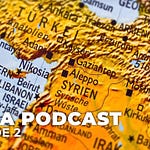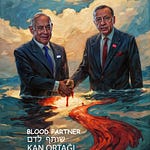“ It is clear that such a major campaign against Germany’s peace and security cannot go unanswered. World propaganda against us will be answered with world propaganda for us.” – Joseph Goebbels [1]
“I just think that what I’d like people to understand is that so many of the things that as Canadians we’d like to think are sacrosanct, you know, whether it’s we live in a democratic society, we have a free and open media, we have academic institutions, like you said, Michael, that are these open spaces of knowledge exchange, all of these things are being severely eroded, seriously eroded. And I think that really what, you know, if Canadians don’t wake up pretty soon, you know, that democracy is going to slip through our hands, like grains of sand, you know, because it really is getting that intense.” – Kevin MacKay, from this week’s interview.
In her 2007 book The End of America: Letter of Warning to a Young Patriot, Naomi Wolf wrote about how the “blueprint” for crushing a democracy always took the form of ten steps:
Invoking an external and internal threat
Establish secret prisons
Develop a paramilitary force
Surveil ordinary citizens
Infiltrate citizen groups
Arbitrarily detain and release citizens
Target key individuals
Restrict the press
Cast criticism as ‘espionage’ and dissent as ‘treason’
Subvert the rule of law [2]
It is shocking to reflect on how many of these steps have been taken in many countries. And not just in places like Ukraine and Israel, as spelled out throughout this website. Canada, too, is not the crusader for democracy it bills itself to be. Several past guests of the Global Research News Hour have experiences with the majority of these repressive measures. And this is a situation that should concern all of us.[3]
We have rocket high inflation, largely due to the war in Ukraine (NATO vs Russia). We have enemies (Russia and Palestine supporters). And increasingly, the “pawns” they set up in academia and in journalism are contributing “dis-information” to stir up harmful dissent in our conversations about war torn regions on the globe.[4]
We are now witnessing innocent people, from independent journalists to intellectuals of high esteem facing open challenges in the public sphere. In Canada, the Canadian Security Intelligence Service (CSIS) have put their women and men on notice to set their sites on any “person of interest” that could pose a threat. And far too many are being detained. [5]
Germany was a democratic society just a few years before suspicion and despair drove it toward a constitutional abyss. If Canada has begun to follow the same path then the subject deserves a fair hearing on the Global Research News Hour. [6]
Our show starts with two women, Eva Bartlett and Tamara Lorincz, who got detained in Canadian airports and asked unusual questions for daring to – gulp – speak with Russians! Later in the program, we hear from three more people: Professor Radhika Desai, Professor Kevin MacKay, and independent journalist Vanessa Beeley about similar encounters in airports and in academia more generally. These individuals through what they experienced tell us more about what happened, how much worse this could get, and what can be done about it.
Eva Bartlett is a Canadian independent journalist and activist. She has spent years on the ground covering conflict zones in the Middle East, especially in Syria and occupied Palestine. She is a recipient of the 2017 International Journalism Award for International Reporting, granted by the Mexican Journalists’ Press Club, was the first recipient of the Serena Shim Award for Uncompromised Integrity in Journalism, and was short-listed in 2017 for the Martha Gellhorn Prize for Journalism.
Tamara Lorincz is a member of Canadian Voice of Women for Peace. Tamara is also a member of the Women’s International League for Peace and Freedom-Canada, and a fellow with the Canadian Foreign Policy Institute. As well, she is on the advisory committee of the Global Network Against Weapons and Nuclear Power in Space, World Beyond War and the No to War, No to NATO Network. She is a PhD candidate, Balsillie School of International Affairs, Wilfrid Laurier University.
Radhika Desai is Professor in the Department of Political Studies at the University of Manitoba in Canada; and she is the Convener of the International Manifesto Group. She is the author of Geopolitical Economy: After US Hegemony, Globalization and Empire (2013) among other books, as well as numerous articles in Economic and Political Weekly, International Critical Thought, New Left Review, Third World Quarterly, World Review of Political Economy and other journals.
Kevin MacKay is Anthropology professor at Mohawk College of Applied Arts and Technology, and also the Co-op Executive Director of Skydragon cooperative, a non-profit community development organization in Hamilton, Ontario. He also coordinates a new group: Canadian Academics for a Just Foreign Policy (justforeignpolicy.ca)
Vanessa Beeley is an independent journalist and photographer who has worked extensively in the Middle East – on the ground in Syria, Egypt, Iraq and Palestine, while also covering the conflict in Yemen since 2015. In 2017 Vanessa was a finalist for the prestigious Martha Gellhorn Prize for Journalism which was won by the much-acclaimed Robert Parry that year. In 2019, Vanessa was among recipients of the Serena Shim Award for uncompromised integrity in journalism.
You can read the full transcript at this link from Global Research.
****
Please do consider subscribing and sharing. Thank you all. xx













Share this post